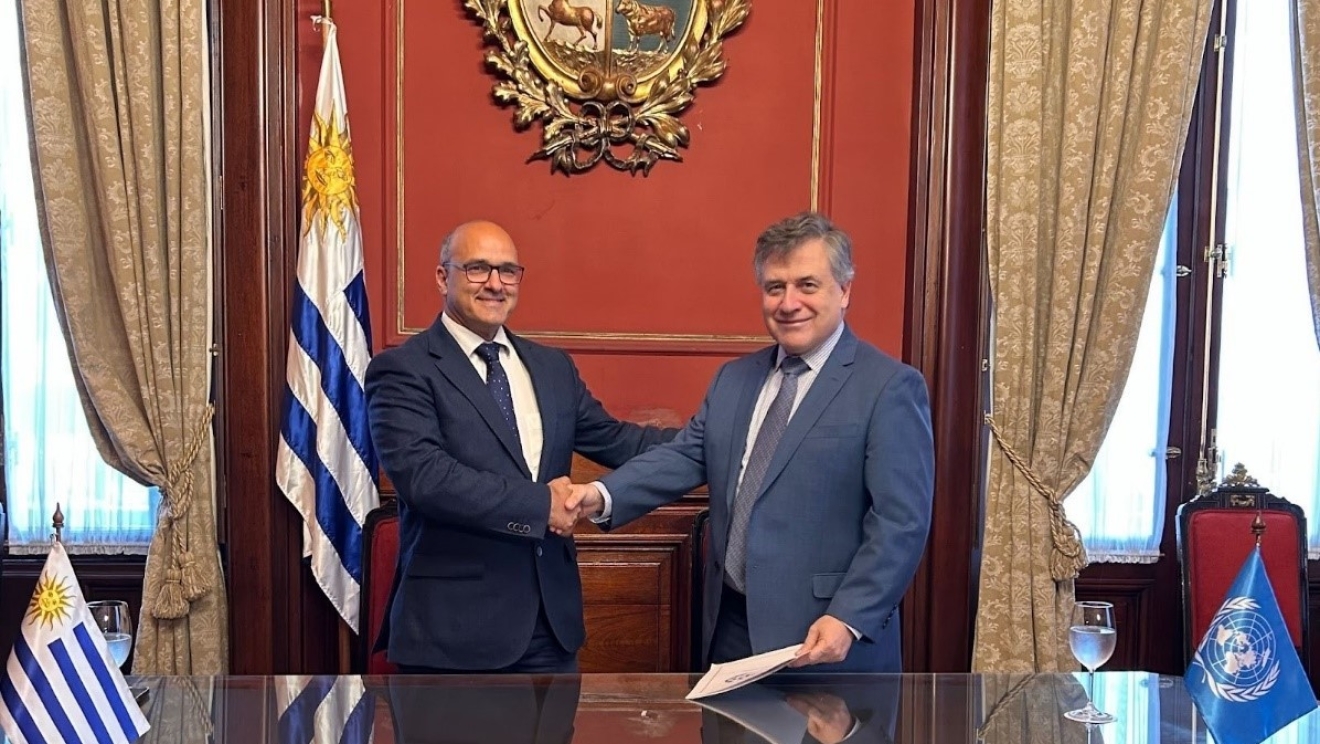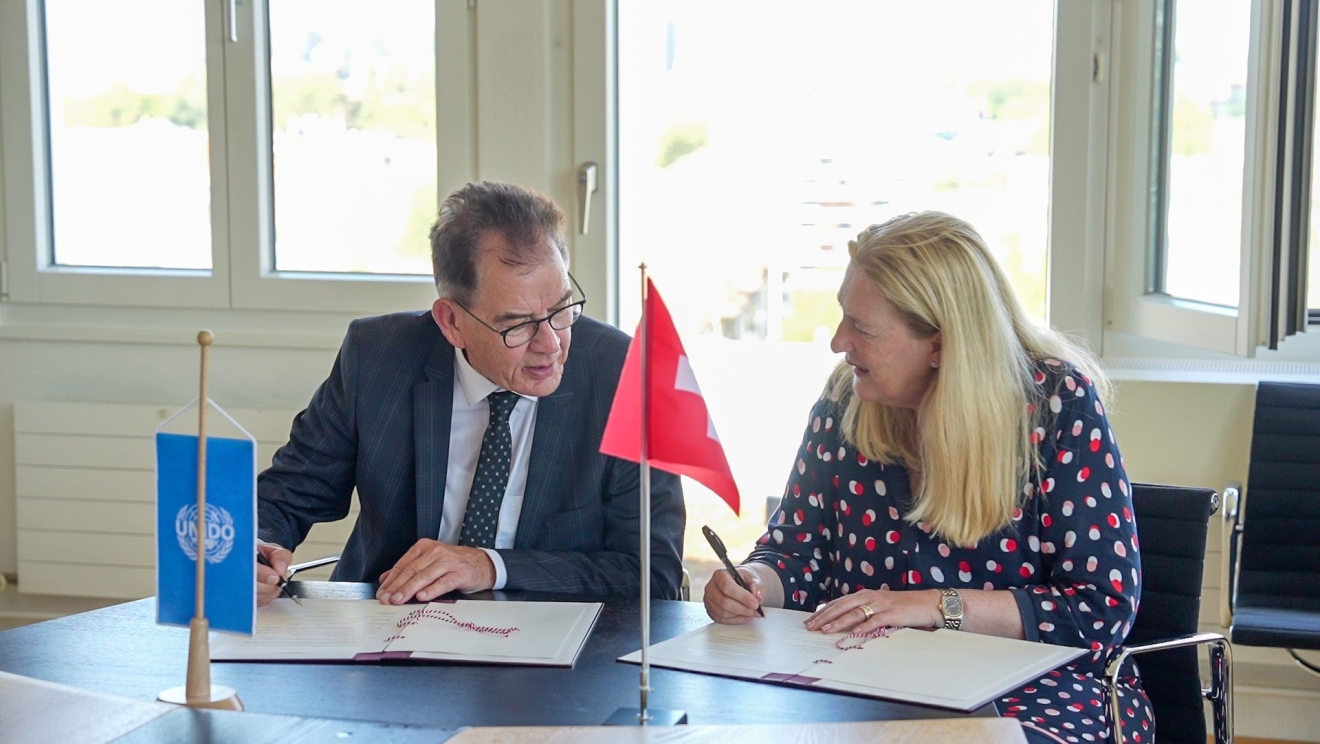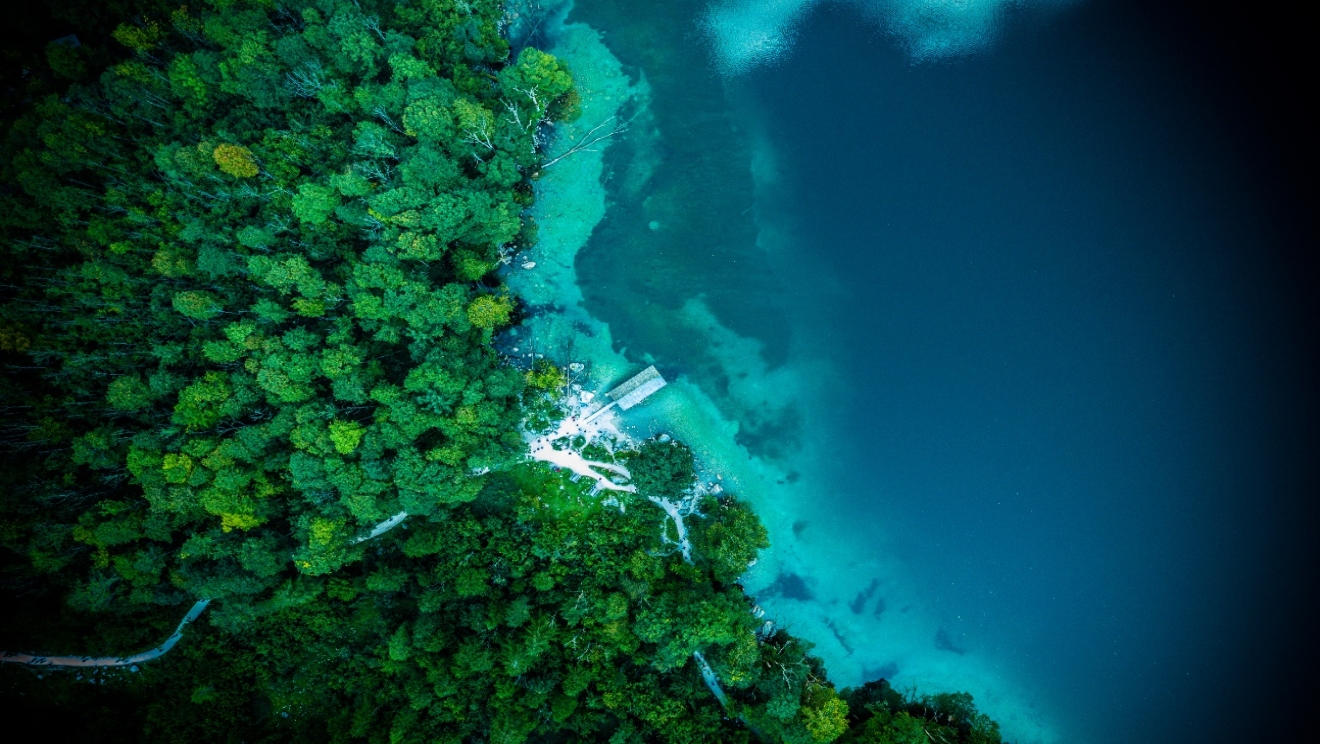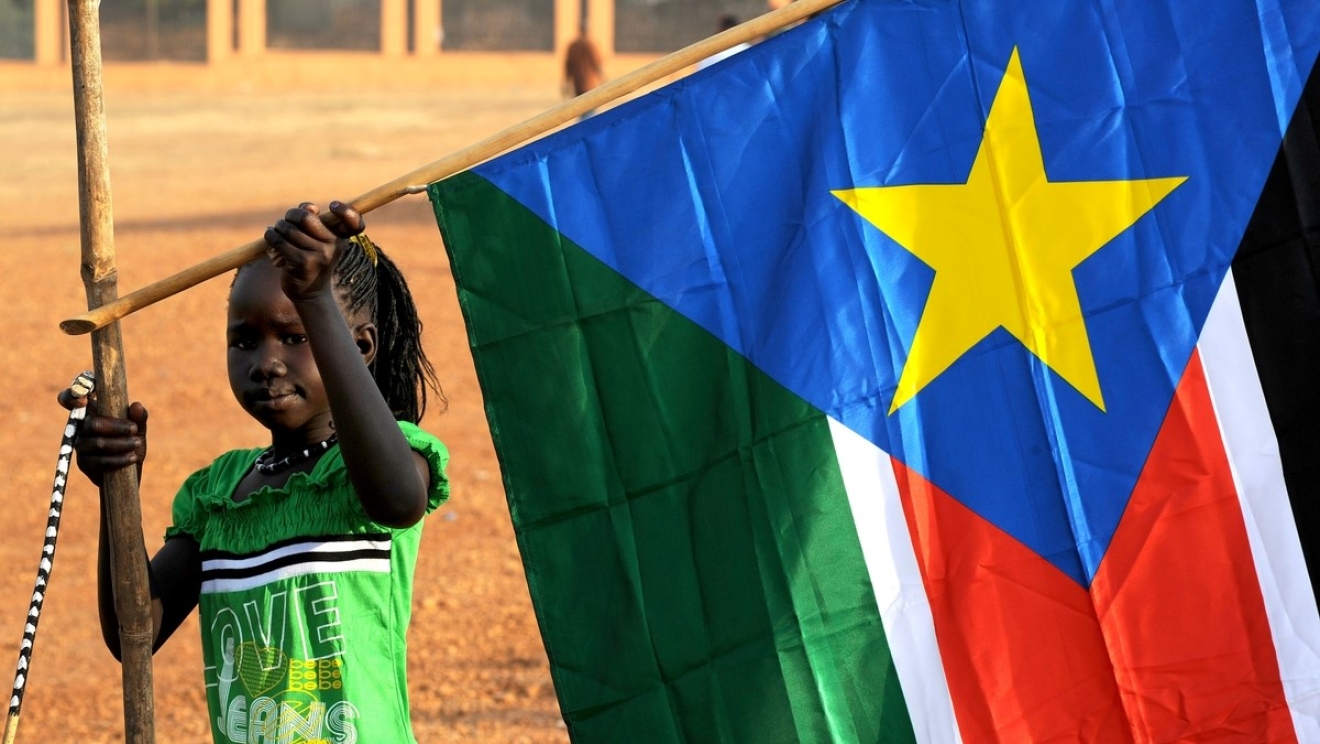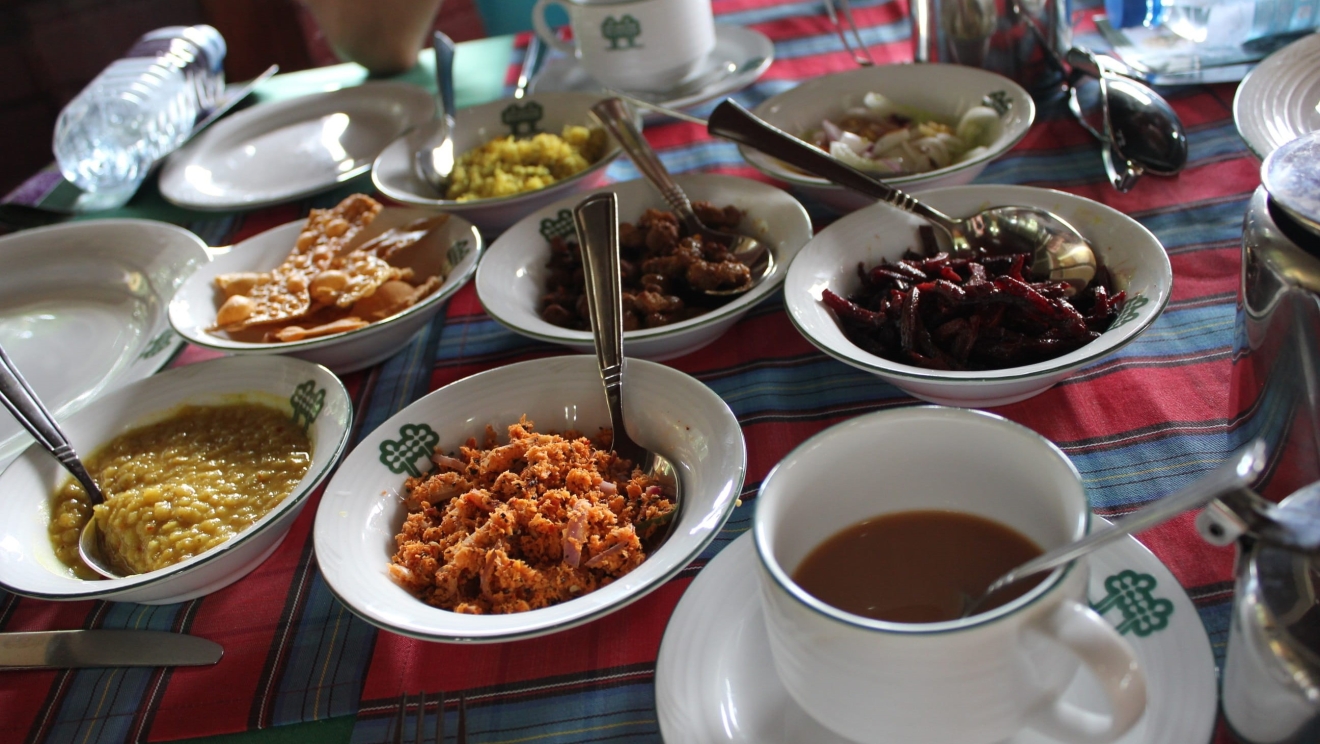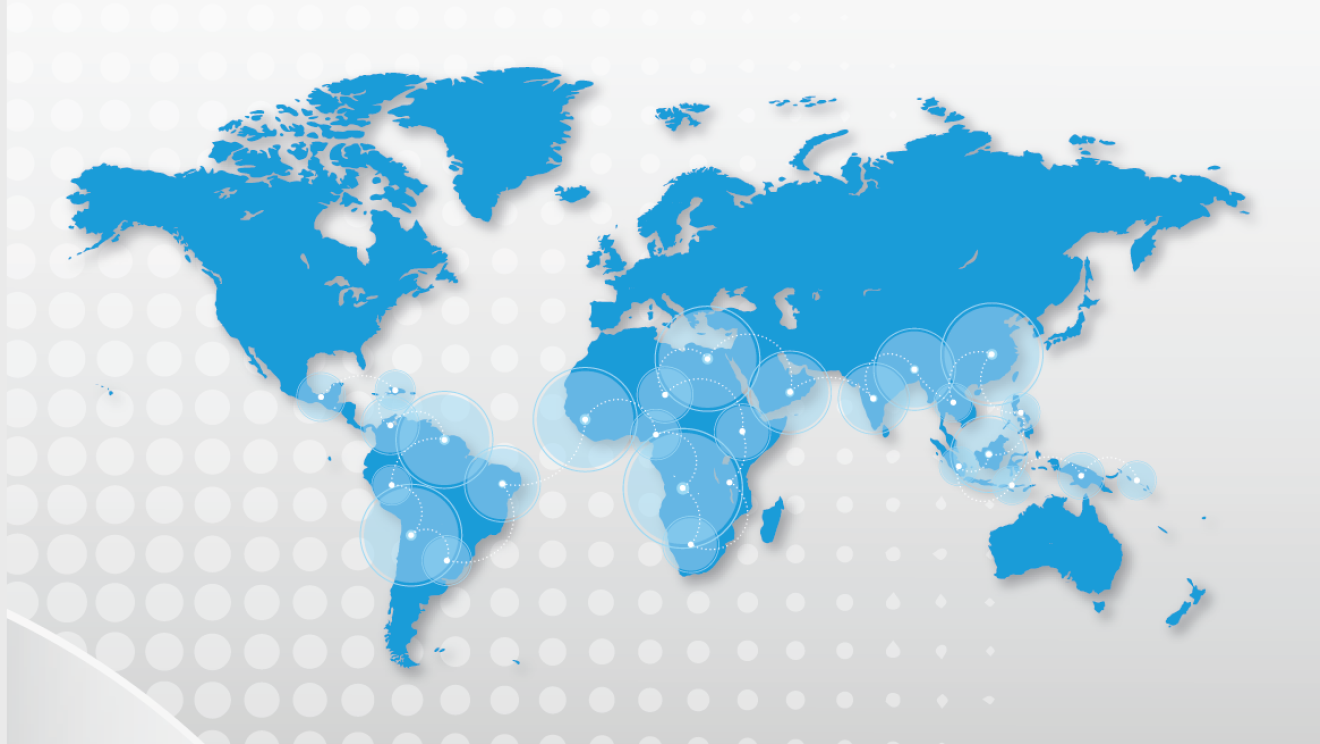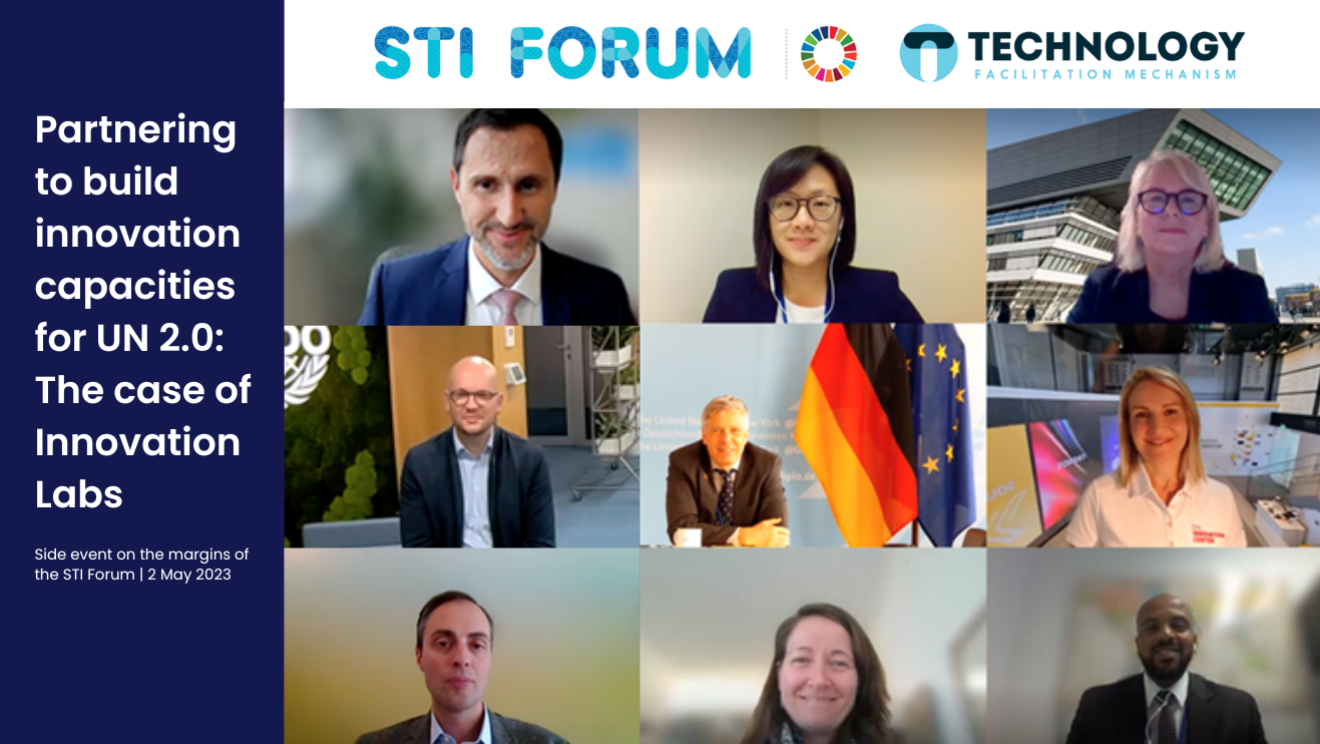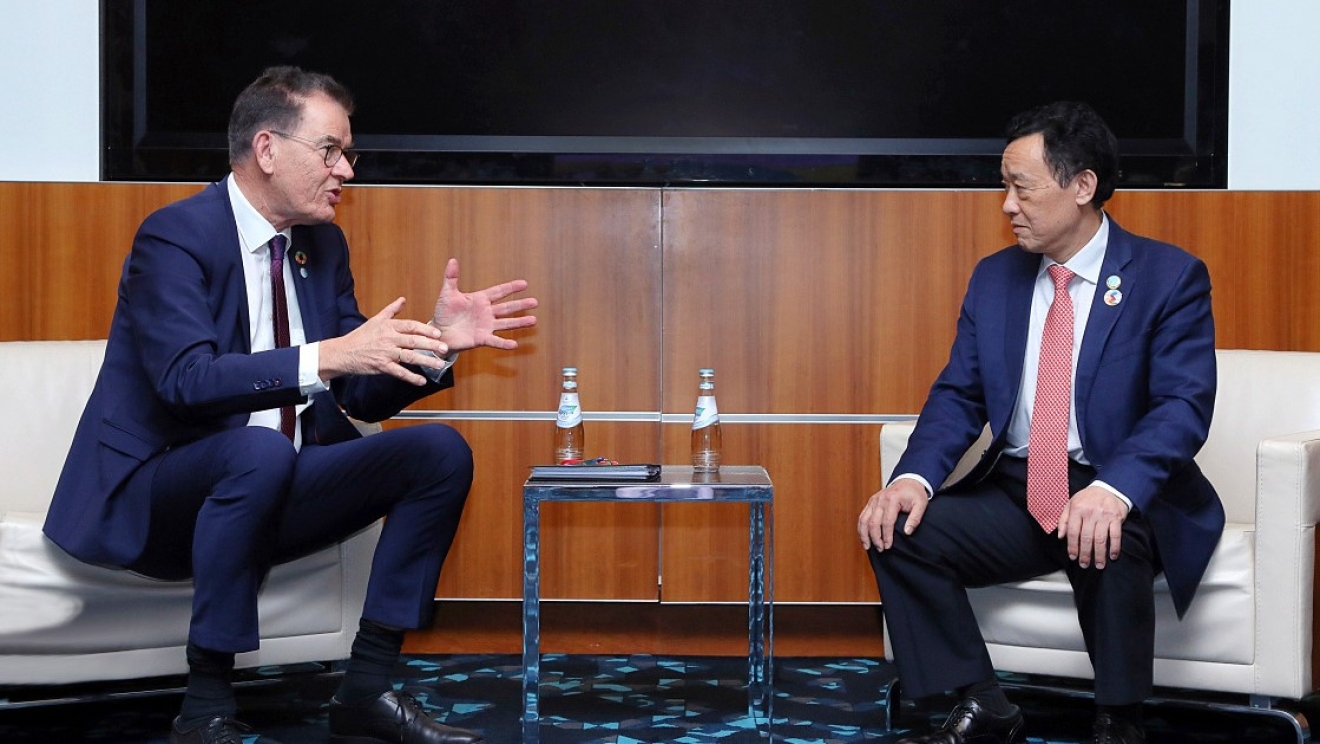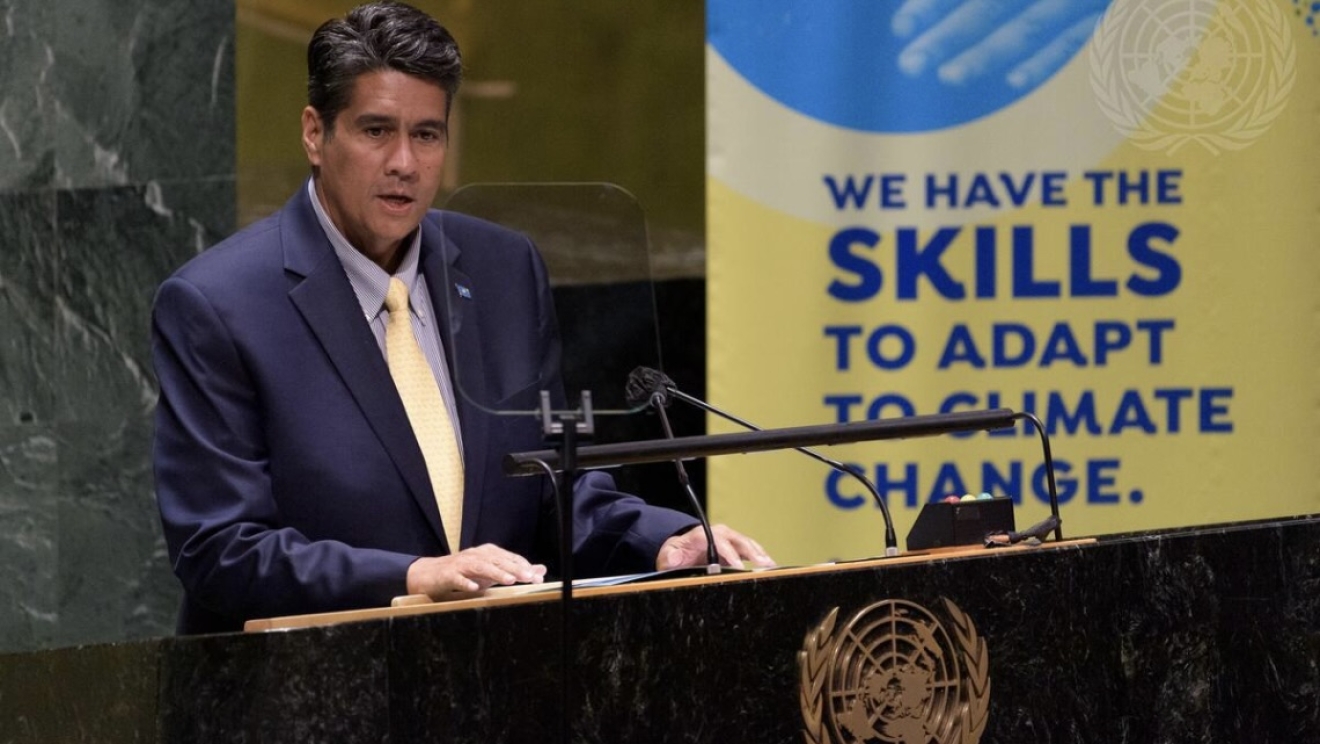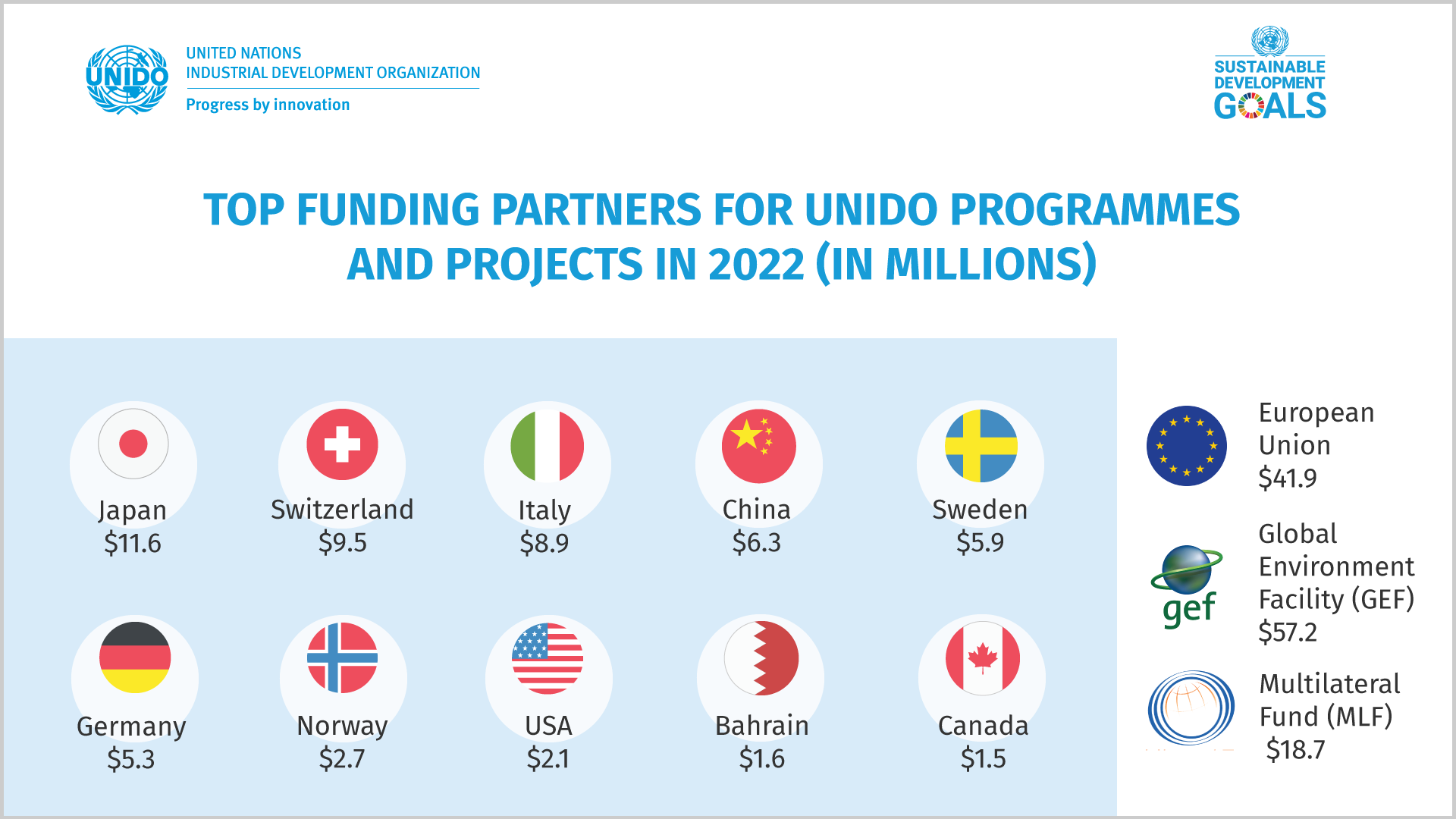
Partnerships
UNIDO has 173 Member States, which provide assessed contributions to fund a regular budget for the Organization’s administration, research and other regular expenses. Member State representatives approve the budget and work programme, and guide the principles and policies of the Organization. (see Policymaking Organs)
UNIDO implements projects and programmes in around 120 of its Member States. In 2023, UNIDO is implementing a portfolio of 636 projects with a total value of US$1,350m. (see Open Data Platform)

To increase the impact of its technical cooperation, as well as to promote major issues related to industrial development, UNIDO joins forces with diverse development partners.
UNIDO remains committed to strengthening the United Nations development system and continues to support the reform for a more cohesive collaboration among development partners. The Organization contributes as a member of the United Nations Sustainable Development Group and other inter-agency coordination mechanisms. At the country level, UNIDO supports the analytical functions of United Nations country teams and resident coordinator offices.
UNIDO works in partnership with many sister organizations in the UN system, for example, with the Food and Agriculture Organization (FAO) on agribusiness development, and with the United Nations Environment Programme (UNEP) in the Partnership for Action on Green Economy (PAGE).
UNIDO is strongly engaged with the BRICS group of five major emerging economies, and with the Group of 77 (G77), the largest intergovernmental organization of developing countries in the United Nations.
UNIDO maintains a strong engagement with the G20, providing expertise in multiple working groups and ministerial meetings as an officially recognized knowledge partner.
With the support from the European Union (EU), UNIDO has actively assists Member States by providing technical cooperation in various fields. A common vision has translated into tangible benefits in over 100 countries in Africa, Asia and the Pacific, Latin America and the Caribbean, and the European Neighbourhood.
The latest UNIDO-Global Environment Facility (GEF) portfolio addresses key environmental challenges, including industrial decarbonization, the application of green hydrogen technologies, green chemistry innovation and innovative investment models for climate change adaptation solutions.
The longstanding cooperation with the Multilateral Fund for the Implementation of the Montreal Protocol remains strong, with UNIDO's Montreal Protocol Division currently working on the phase-out of hydrochlorofluorocarbons (HCFCs) and phase-down of hydrofluorocarbons (HFCs) in about 70 countries.
UNIDO’s partnerships with the business sector deliver significant developmental impact by collectively achieving more than the sum of their parts. (See Business sector)

